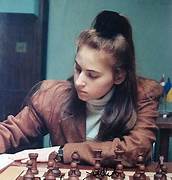 |
 |
 |
 |
Introduction
In the world of chess, a game historically dominated by men, Judit Polgar stands out not only as the greatest female chess player of all time but also as one of the top players overall. Born on July 23, 1976, in Budapest, Hungary, Polgar shattered stereotypes and challenged the status quo, proving that gender has no bearing on one's ability to excel in chess. Her career is a testament to perseverance, talent, and an unyielding spirit.
Early Life and Introduction to Chess
Judit Polgar was born into a family that believed in the extraordinary potential of their children. Her father, Laszlo Polgar, a psychologist and chess teacher, was convinced that any child could become a genius with the right kind of education. He decided to test his theory on his daughters, Susan, Sofia, and Judit, by immersing them in the world of chess from a very young age.
Judit's journey began at the tender age of five. Under her father's guidance and the competitive yet nurturing environment fostered at home, Judit quickly displayed a prodigious talent for the game. By the time she was nine, she had won the under-11 boys' championship in New York, showcasing her potential to the world.
Rise to Prominence
Judit Polgar's rise through the ranks was meteoric. At the age of 12, she earned the title of International Master, and by 15, she became the youngest grandmaster in history, surpassing Bobby Fischer's record. This milestone was just the beginning of a career that would see her compete against and defeat many of the world's top players.
In 1991, at just 15 years old, Judit won the Hungarian National Championship, her first major victory against a predominantly male field. This victory was a significant turning point, marking her transition from a child prodigy to a formidable competitor in the adult chess world.
Breaking the Gender Barrier
Throughout her career, Judit Polgar consistently chose to compete in open tournaments rather than women-only events. This decision was both a personal preference and a statement against the gender divisions in chess. She believed that her skills should be measured against the best, regardless of gender.
Her victories against top male players, including former world champions Garry Kasparov, Anatoly Karpov, and Viswanathan Anand, cemented her reputation as one of the best in the world. In 2002, she achieved a peak rating of 2735 and was ranked eighth in the world, a remarkable achievement for any player.
Notable Matches and Achievements
Judit Polgar's career is filled with notable matches and achievements. Some of the highlights include:
1. Defeating Garry Kasparov (2002): In a historic match, Polgar defeated Kasparov, who had previously remarked that women should stick to "feminine" subjects. This victory was not only a personal triumph but also a symbolic win for women in chess.
2. Olympiad Successes: Polgar represented Hungary in several Chess Olympiads, leading her team to numerous victories and earning individual gold medals in 1990, 1992, and 1994.
3. Grand Slam Victories: Polgar has won many prestigious tournaments, including the Madrid International Chess Tournament in 1994 and the Hoogeveen Chess Tournament in 2004.
Impact and Legacy
Judit Polgar's impact on the world of chess extends far beyond her victories and titles. She has been a trailblazer for women in chess, challenging the notion that chess is a man's game. Her success has inspired countless young girls to take up chess and pursue it competitively.
In 2014, Judit Polgar retired from professional play, but her involvement in chess continues. She established the Judit Polgar Chess Foundation, which promotes chess education for children and encourages critical thinking and problem-solving skills. Through her foundation and various educational programs, Polgar continues to contribute to the chess community and inspire future generations.
Personal Life and Character
Beyond her achievements on the chessboard, Judit Polgar is known for her humility, intelligence, and dedication to the game. Despite her groundbreaking success, she remains approachable and committed to sharing her knowledge and passion for chess with others.
Polgar is also a devoted mother and has balanced her personal and professional life with grace. Her ability to juggle the demands of a high-level chess career with her family responsibilities is a testament to her extraordinary character.
Judit Polgar’s Contributions to Chess Literature
Polgar has also made significant contributions to chess literature. Her series of instructional books, including "How I Beat Fischer's Record" and "From GM to Top Ten," provide valuable insights into her thinking process and game strategies. These books are cherished resources for both aspiring and seasoned players, offering a rare glimpse into the mind of a chess genius.
Conclusion
Judit Polgar's legacy in the world of chess is unparalleled. She not only broke barriers and set new standards for women in chess but also proved that excellence in this game is not limited by gender. Her journey from a young prodigy in Budapest to one of the greatest chess players in history is a story of talent, determination, and resilience.
Polgar's influence continues to be felt through her educational initiatives and inspirational presence. She remains a role model for aspiring chess players around the world, embodying the spirit of chess with her unyielding pursuit of excellence and passion for the game. Judit Polgar is not just a champion of chess; she is a symbol of what can be achieved with dedication, hard work, and a refusal to accept limitations.